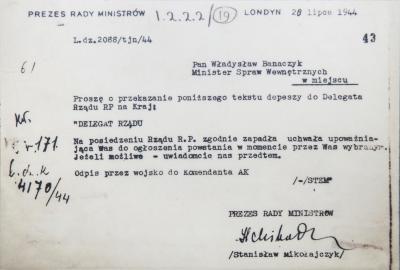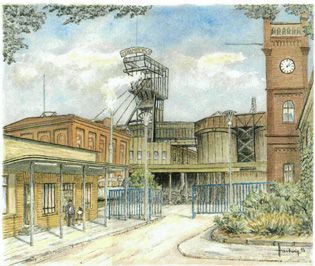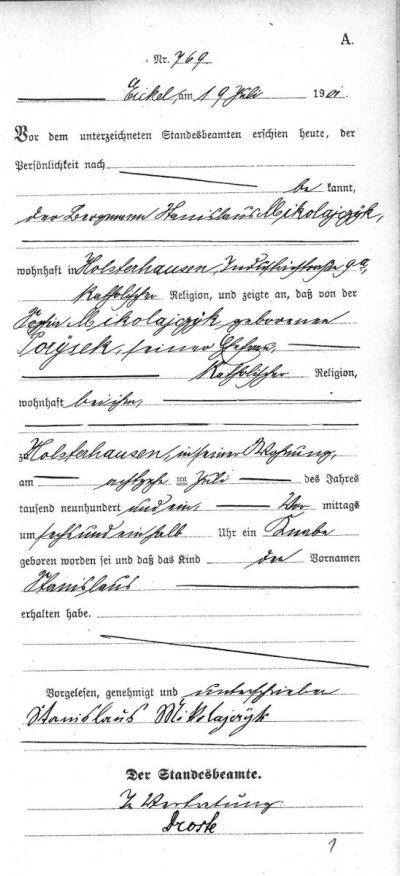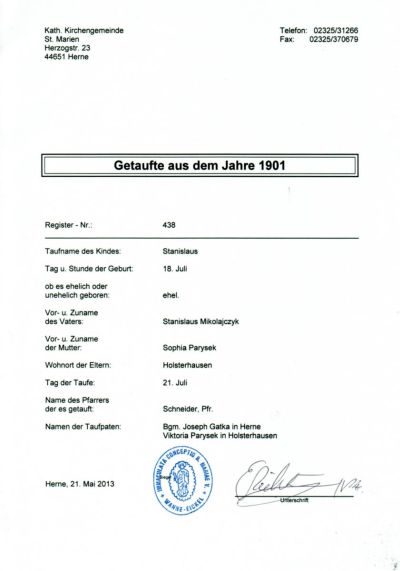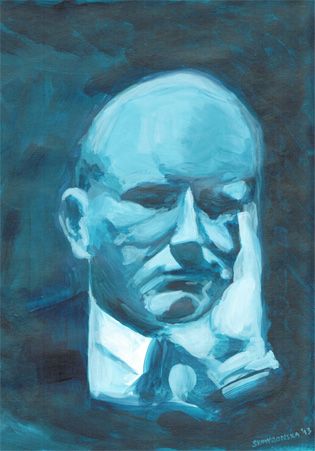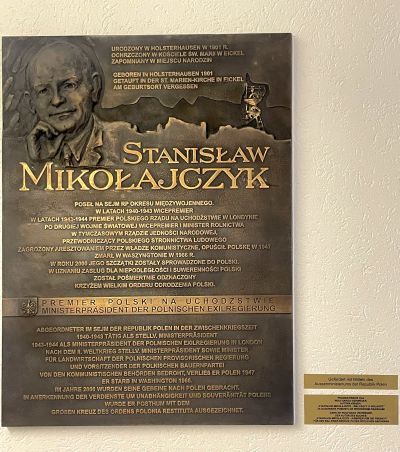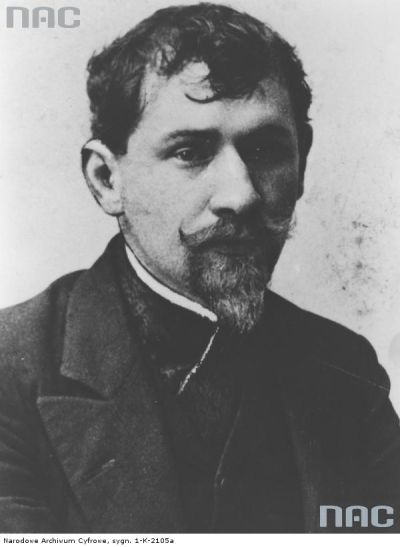Stanisław Mikołajczyk
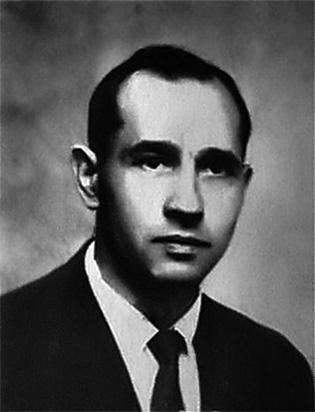
Although Stanisław Mikołajczyk was the Minister President of the Polish exile government between July 1943 and November 1944, there are next to no details about his childhood in the Ruhrgebiet. At the start of his memoirs, which were published in 1948 in Washington, he notes: “My father, who had 15 siblings, was born on a small farming estate in western Poland. He left the area to seek work in the coal mines of western Germany.” Mikołajczyk’s reticence is understandable because he wanted to protect friends and relatives in Poland because in 1948 the country had just become a Soviet-style “Peoples Republic”.
In biographies and on the Internet Mikołajczyk’s place of birth is given as “Holsterhausen in Westphalia“. This is correct but it is also confusing because the place name occurs not only in Essen and Dorsten but also in the former administrative district of Eickel. To date the favoured interpretation is Dorsten-Holsterhausen. The only clear reason for this is because the entries in the registers of births and baptisms have not been examined carefully enough. Historians have clearly not reckoned with the unprepossessing Holsterhausen; in 1809 it was still a hamlet with 147 inhabitants; and in 1902 it was at least a parish of 7289 inhabitants in the administrative district of Eickel. The result of this confusion had a disastrous effect on his reputation. The most famous Pole in the Ruhrgebiet during the 20th century was completely unknown not only in the region but also in his place of birth. And so he was never given the recognition due to him in the history of Poles in Germany.
The documents belonging to the registry office in Eickel (now kept in the Herne town archive), and the notes in the secretariat of the church of St Mary in Eickel in 1901 provide us with the following picture of the Mikołajczyk family in the Eickel district of Holsterhausen:
Around 1895 Stanisław Kostka Mikołajczyk, (the son of a farmer in the village of Benice in the district of Krotoschin in the Prussian province of Poznan) and his wife Sophia (maiden name, Parysek) left home to find work in the Eickel district of Holsterhausen. Here Stanisław Kostka was employed at the Shamrock I/II colliery. Around 1900 there were around 8,500 coalminers living in their own homes in the Herne mining area, the majority of whom lived in standardised colliery houses. Each household had five rooms covering a total of 81.5 m² on two floors. The rent was on average 15 to 20 marks a month, around half of the usual price on the free market. As a colliery face worker at Shamrock I/II, (after the turn-of-the-century at Shamrock III/IV), Stanisław Kostka earned 130 marks a month.
His son “Stanislaus“ was born on Thursday, 18th July 1901 at his home in Industriestraße 9a (now Beckumer Straße 9a) in Holsterhausen. On the following day his father registered the birth in the registry office in Eickel. The Registry officer Stork noted in sheet A 769 that the baby was a boy, born in wedlock and Roman Catholic. He was given the name “Stanislaus“. At the time registry officers were duty bound to enter first names with the final German syllable “-laus” instead of the final Polish syllable “-lav”. This regulation was introduced in 1890 by Kaiser Wilhelm II as part of his policies with regard to ethnic minorities. By contrast with his predecessors he was no longer prepared to tolerate the individual cultural features of minorities in the Reich, and wanted to wipe out any differences between minorities and German citizens, a policy which led precisely to nationality conflicts.
